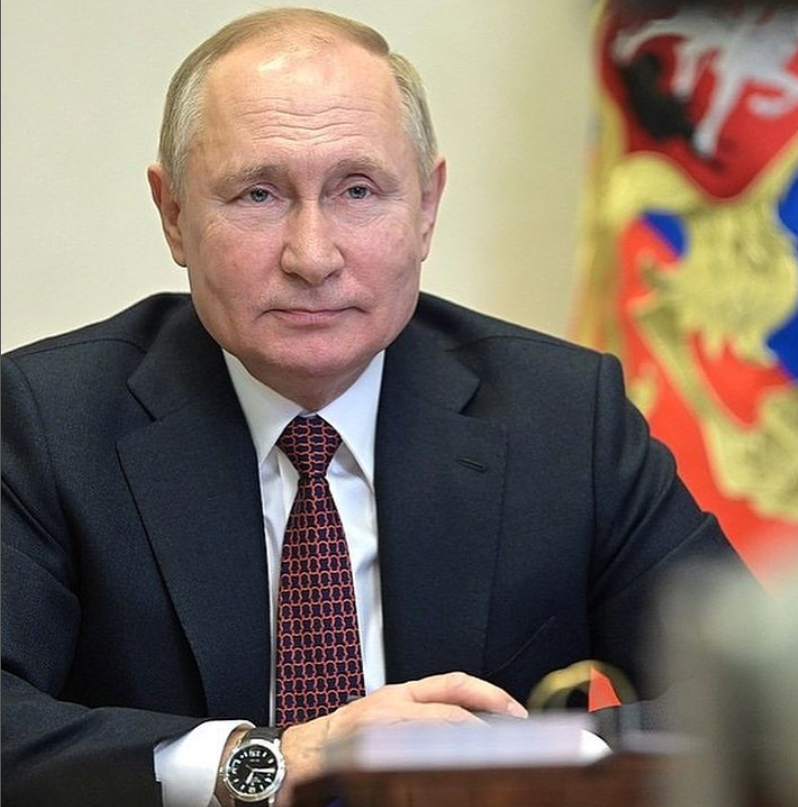U.S. Should Not Rush into Conflict with Russia
The U.S. should have a policy of neutrality towards the Ukrainian crisis.
“I’ve already shipped over $600 million worth of sophisticated defensive equipment to the Ukranians. The cost of going into Ukraine, in terms of physical loss of life for the Russians, and they’ll be able to prevail over time, but it’s gonna be heavy, it’s gonna be real, it’s gonna be consequential,” President Joe Biden said in a Jan. 20 news conference addressing the Ukrainian crisis last Thursday.
American intervention is designed to make invasion as expensive as possible for the Russians. Armaments for Ukrainians and sanctions for Russia, both measured in dollars, are attempts to balance sides of a precarious equation.
It is possible that if Kiev falls to Russia, Taipei will fall to China and despots everywhere will feel emboldened to redraft their local maps. The next domino will topple sequentially. It is plausible that an emboldened China will sweep southward as a preoccupied America watches helplessly. Or so the thinking seems to go.
One can presume that the U.S. will draw a line in the sand, protecting Ukraine as an example to the world, despite Ukraine having little to no strategic importance from the American perspective.
According to a 2015 evaluation by American political scientist and international relations scholar John Mearsheimer, it’s unlikely Russian forces will even try to reach Ukraine’s capital of Kiev. Putin, Mearsheimer holds, is more interested in wrecking Ukraine than conquering it: “If you really want to wreck Russia, what you should do is encourage them to try to conquer Ukraine,” Mearsheimer said.
Russia, like Israel, Britain and the U.S., has already learned to avoid fighting bloody and protracted campaigns against guerilla resistance. Additionally, the Chernobyl exclusion zone lies on the shortest path between Russia and Kiev, presenting a daunting challenge to Russian ground troops.
The State Department announced over the weekend following Biden’s statements that U.S. diplomats would begin evacuation from the region. The urgency echoes the rushed and embarrassing exodus of U.S. personnel from Kabul. Unlike in Afghanistan, however, it’s unlikely we are about to see an entire government wiped away. Then again, maybe something has changed in the seven years following Mearsheimer’s proclamation.
If a puppet government is indeed installed in Ukraine, Russia would be taking a page from a very old playbook.
Like Moscow, Washington is also reluctant to tolerate foreign influences near the homeland. To think anti-American regimes would be allowed to stand in Canada or Mexico is absurd. Granted, ground invasion is a less subtle method of regime change than the infiltration and subtle spy games favored by the CIA.
As an American, I am not ashamed that my country regularly topples inconvenient or hostile regimes. I appreciate the foresight and the logic of defending American interests, except for those rare occasions when deposed rulers were democratically elected and replaced with brutal autocrats. Usually, spreading democracy is in America’s best interest.
Other nations are understandably eager to imitate this type of hard power by spreading their own brand of governance. Since the Clinton administration, Russia has watched as NATO swept relentlessly eastward towards their historically vulnerable border. Putin’s aggressive posturing is neither insane nor evil, it’s logical and bigger than the personality of a single man.
By threatening Russia with everything short of war, Washington is underestimating the resolve of a nation pressed into a corner.
In maintaining a hardline anti-Russian stance, the U.S. is falsely emboldening Ukrainians to confront an enemy they cannot possibly hope to defeat. Much like the fate of Iraqi Kurds, Washington’s current tactic is bound to end in catastrophe for those Ukranians in whom false hope has been fostered. As tragic as the Ukrainian conflict has been, Russia should be allowed to defend its interests when they do not threaten those of the U.S..
By providing arms to soldiers with no hope of winning, an inevitable conflict is made bloodier, and the U.S. stands to lose Ukrainian and Russian trust. Enlightened intervention would not antagonize Russia or embolden Ukraine — it would be neutral. Instead of arming foreign paramilitaries, Washington should learn from its mistakes in Afghanistan. American armaments have a funny way of ending up in the hands of its adversaries.
By continuing to insist on a pro-American, anti-Russian Ukraine, Washington only validates Russian fears of an enemy on their doorstep and justifies the rationale behind invasion. As Americans, we should ask ourselves if our national policy would be any different from Russia’s, if we were in the same situation.
We must contexualize Moscow’s decisions without condoning them. An ascendent China will present challenges unlike anything the U.S. has ever experienced, and we will want Russia on our side when that day comes. The continual paranoia that followed American-Russian relations in the wake of World War II has no place in foreign policy.
Michael Leifer, FCLC ’22, is a journalism major from Princeton, NJ.










































































































































































































